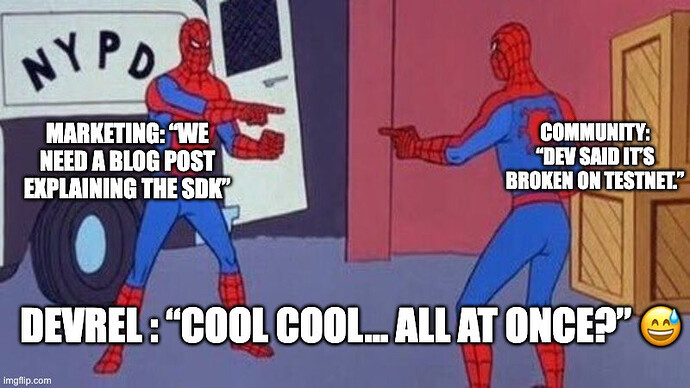If you’ve worked in DevRel for more than five minutes, you’ve probably felt this:
You’re in a product sync at 10AM, reviewing open GitHub issues at 11, testing SDKs at lunch, hopping into a marketing brainstorm at 2PM, and replying to a community fire drill by 4.
Not a complaint — just… reality.
Because DevRel doesn’t really fit into one department.
We sit in between. We connect the dots no one else notices.
Here’s what that often looks like:
- Product Team asks: “Why are devs not using this feature?”
DevRel replies with actual community feedback, real examples, and maybe a broken onboarding step.
- Marketing asks: “Can we simplify this for launch messaging?”
DevRel translates the engineering truth into human-speak (and avoids overpromising).
- Engineering asks: “Why are people misusing our API?”
DevRel brings back patterns, pain points, and edge cases spotted in the wild.
- Community asks: “Can someone explain this release? The docs don’t make sense.”
DevRel jumps in with a workaround… and quietly updates the docs that night.
The Role? It’s Not Just Translation — It’s Trust
DevRel builds the connective tissue across silos.
We make sure the story lines up with the system.
We advocate for developers to the company — and for the company to developers.
That kind of positioning is messy. And powerful.
TL;DR:
DevRel isn’t just support. Or marketing. Or product.
We’re the human API — handling requests from all sides and returning clarity (when the system doesn’t 404).
If you’re doing this work, curious how you manage the context-switching chaos.
And if you’re not in DevRel — what’s something you wish DevRel explained better?
